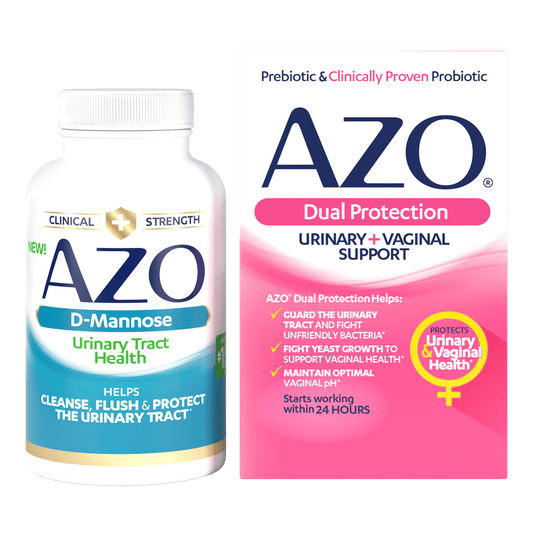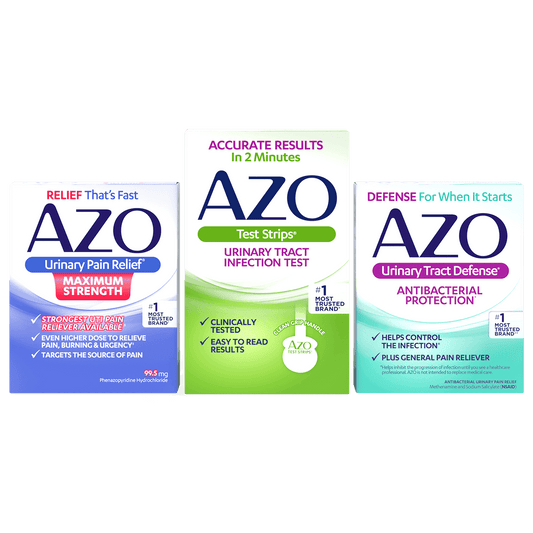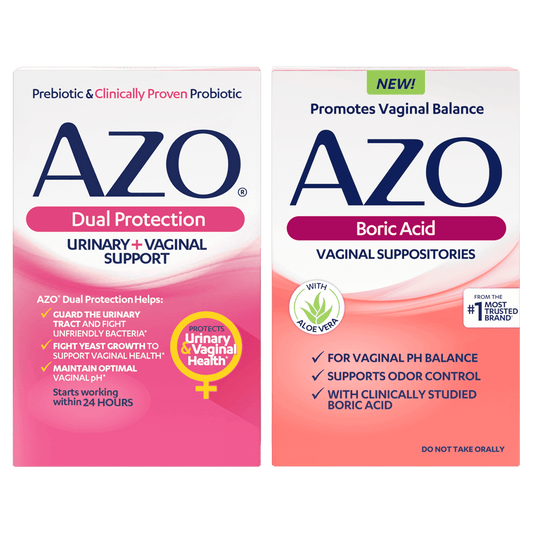WHAT IS THE URINARY TRACT?
Ahhhhh, the urinary tract. We all have one. This vital system filters blood and eliminates unwanted waste and water as urine. It is comprised of multiple anatomical structures placed in a particular order: kidneys, ureters, bladder and urethra.
Meticulous urinary tract health and hygiene habits are vital.
First, the kidneys are visceral organs located in the mid-back or flank that handle the filtering. They also play a major role in regulating blood pressure. The ureters are long tubes that drain the kidneys into the bladder. The bladder has two primary roles: it holds and stores urine until elimination, and it controls voluntary urination. The urethra is the tube and opening through which urine passes from the bladder to the outside of the body. In women, the urethra is short and lies in close proximity to the vagina, anus and rectum, where many bacteria naturally reside in large numbers. For this reason, good urinary tract hygiene habits are vital.
WHAT COMPLICATIONS AND ISSUES CAN ARISE FROM POOR URINARY HEALTH/HABITS?
Urinary tract infections (UTIs) are incredibly common. Women are especially prone to bladder infections (cystitis) since bacteria from the anus, rectum and vagina can easily contaminate the urethra and infect the bladder. The all-too-familiar symptoms of a UTI, including urinary frequency, urgency and discomfort, can quickly ensue. Hygiene habits, sexual activity, prolonged holding in of urine and exposure to constant moisture (from a wet bathing suit, for example) can all increase the risk of a UTI.
WHAT ARE SOME GOOD HABITS TO ADOPT TO BE PROACTIVE ABOUT YOUR HEALTH?
AZO Cranberry® Products are formulated with clinically-proven Pacran®, a super-concentrated cranberry powder that helps flush the urinary tract.*
First, always wipe from front to back (urethra towards rectum) when using the bathroom. Also, make sure to urinate before and after sex to naturally flush bacteria from the urethral opening. For multitasking women, always on the go, try to urinate every few hours whenever you have the opportunity instead of holding it in all day. Hydrate adequately. Remember to change out of wet bathing suits or workout clothing as soon as possible. For additional urinary health support, try adding cranberry supplements to your routine. AZO Cranberry® Products are formulated with clinically-proven Pacran® to support urinary tract health.* Pacran®, a super-concentrated cranberry powder, helps flush the urinary tract.* It is theorized that proanthocyanidins (PACs), along with a list of the compounds found in cranberries, prevent E. coli, the bacteria responsible for a majority of UTIs and kidney infections (pyelonephritis), from adhering to the cells lining the urinary tract and bladder.
WHAT SHOULD YOU DO ONCE YOU HAVE AN INFECTION OR COMPLICATION AND WHAT HAPPENS IF IT’S LEFT UNTREATED?
If you have ever had a UTI, you know how quickly symptoms can develop and progress. Left untreated, a simple UTI can progress into a kidney infection (pyelonephritis), which can be severe and even life-threatening. Symptoms include fever, chills, flank pain and bloody urine, all of which warrant medical attention. At the first sign of a UTI, seek a medical evaluation, obtain a urinalysis and urine culture and treat with antibiotics if indicated. Many healthcare providers can treat based on clinical symptoms over the phone. Treatment will likely include a short course of oral antibiotics, hydration and observation. In most cases, relief is immediate. For chronic, recurrent or more complicated infections, more aggressive treatment and even hospitalization could be needed. It is best to address symptoms early because as they say, “an ounce of prevention is worth… avoiding a pain in the bladder.”
ABOUT DR. KIRA SCHMID HALAK:
Dr. Kira Schmid Halak received her doctorate in naturopathic medicine from Bastyr University in Seattle, WA. Dr Halak is Senior manager of global R&D (Research & Development) for the AZO and Estroven brands and is passionate about women’s health. She was also the scientific director for the integrative medicine textbook, Disease Prevention & Treatment, and she is often heard on national and regional health programs, as well as being a frequent contributor to widely read health and wellness publications.











